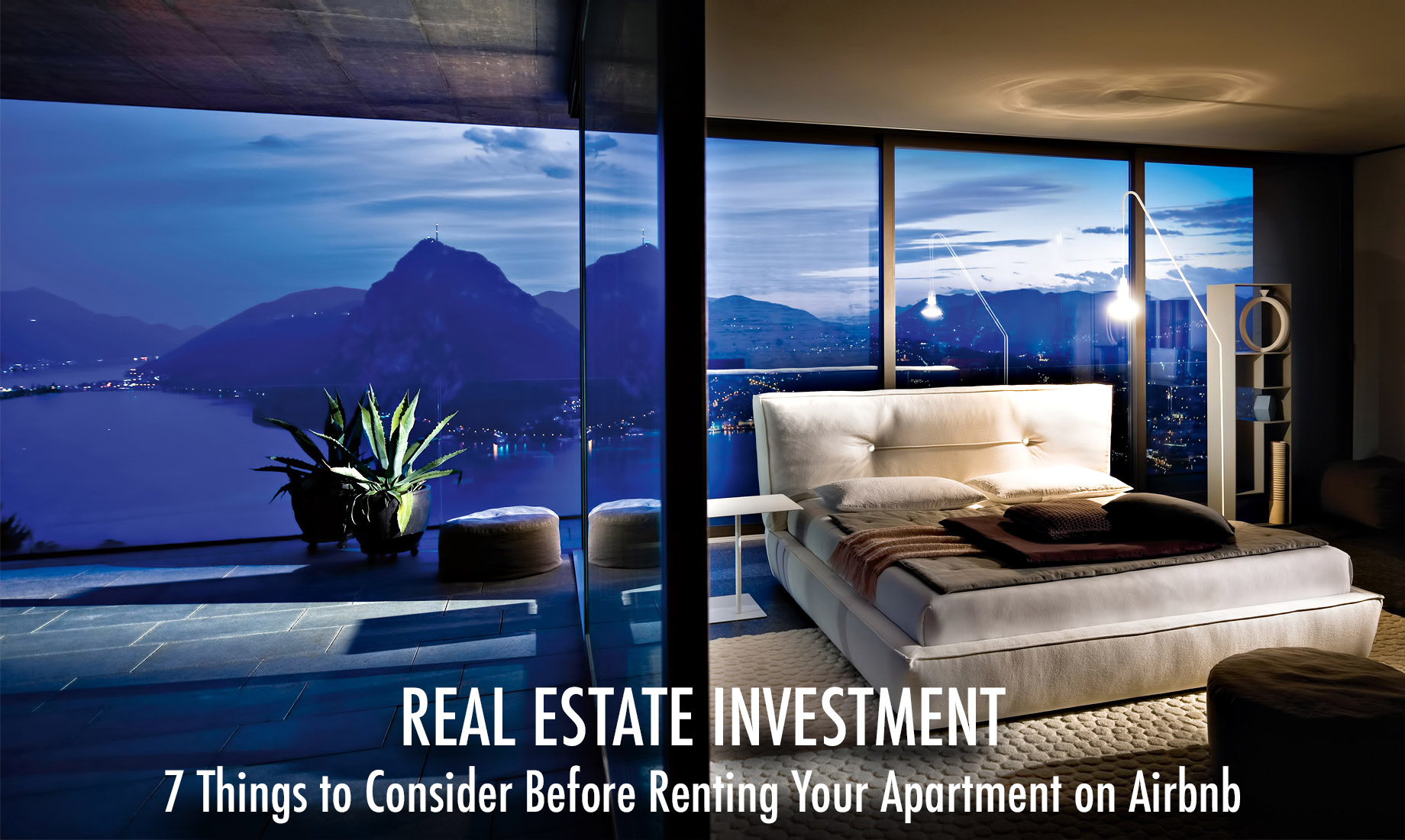
Being an Airbnb host can be rewarding in its own way, especially for anyone who’s ever dreamed of opening their own B&B but lack the funds to do so. Besides, there’s the added benefit of the extra cash flow without it being another full-time job. Renting out an apartment on Airbnb is a genuinely solid option as a legitimate side-hustle. But (and there always is one, isn’t there) it does require thorough planning and some setup costs first.
Think about these 7 things before renting out on Airbnb:
1. Prepare for a Timely Undertaking
It might be a side-gig for some, but they still have to put in the time to get the listing set up and off the ground. Be prepared for this to take up personal time, especially in the beginning, when all the kinks are still being worked out. Hosts also need to be “on call” whenever they have guests, in case of an emergency, and to make sure all their needs are being met.
2. The Competition
Having an Airbnb listing is a business like any other, which requires energy, money, and forethought to be successful. This means looking at the competition in the area and positioning the listing favorably among those. That entails how the listing is presented and described, pricing, and any unique aspects that set it apart.
3. Playing The Pricing Game
Pricing is always a difficult subject because it varies greatly from one location and listing to another. Factors that can affect the price are the location, view, amenities, style, security, and any unique attributes the listing has.
Keep in mind that the price should never stay constant but may change throughout the seasons, because of market changes, or during special events. For instance, if there’s a big occasion happening soon, like the Football World Cup, then more people will want somewhere to stay.
4. Inviting Strangers In
A very important thing to keep in mind is that becoming an Airbnb host equates to dealing with a lot of strangers. Depending on the listing’s setup, whether it’s a room in a house or a separate unit, that still rings true. Obviously, if the host still lives in the same house, then they have to be comfortable with other people in their personal space too.
If the idea of dealing and possibly living with a constant influx of strangers causes uneasiness, then this probably won’t work. Airbnb’s are essentially part of the service industry after all, so customer satisfaction matters, and that means a friendly, helpful disposition.
5. The Risk of Loss and Liability
Inevitably there will be some losses now and then from careless or willfully petty guests. Carefully vetting guests and setting up a long list of rules can go far, but a few rotten apples will still get through eventually. Stolen items and broken furniture aren’t the only things to consider either.
Providing WiFi has become a standard offering across most Airbnb hosts, but visitors can abuse that too. Whether they’re visiting shady websites or torrenting illegal content, a virus is always only a click away.
That will affect everyone else in the house (if it’s not a standalone apartment) and might even get the police involved if there’s a situation concerning illegal content. Many hosts have a VPN installed on the router for this very reason. VPN technology will help keep the connection safe, even if guests are visiting sketchy websites or torrenting files.
6. Dealing With Sudden Interruptions
Hosts who can afford to (or who have multiple listings) may hire a listing manager to handle all of the hosting-related duties for them. But first-time hosts or those who only have one listing will usually have to do all of these things themselves. This includes handling bookings and check-ins, restocking supplies, cleaning the room or apartment, handling complaints, and dealing with emergencies.
All of this can rack up quite a bit of time and cut into personal obligations and downtime. But it’s crucial that these points are dealt with, or the business will suffer from poor customer satisfaction and a declining rating.
7. The Impact of Local Laws & Landlord Rules
Every country and city has its own regulations regarding renting out apartments or rooms and what that process might entail. Look at laws that are applicable to tenancy and renters, for example. Some cities might now even have laws specifically relating to Airbnb or similar situations too.
Think about the Home Owners Association and landlords as well if it’s not a private-owned standalone home. Make sure to get permission for the listing first or risk facing huge fines and possibly, eviction.
The Bottom Line
Being an Airbnb host can be a very satisfying side-venture and even a fulltime job when running multiple listings. But it’s a lot of responsibility and will interrupt other areas of a host’s personal life. Anyone with a room or apartment on Airbnb should always take risks and obligations into consideration, along with the rewards.